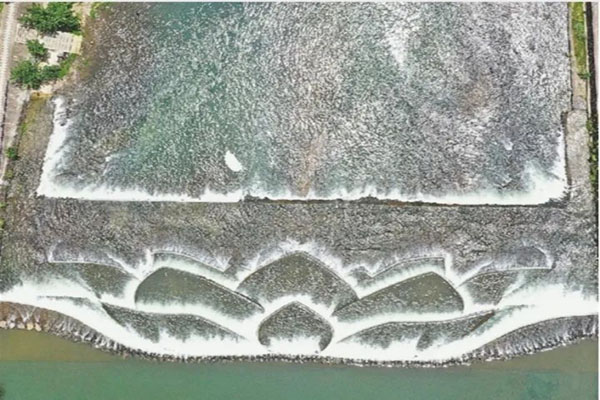Visa rules eased for recipients of Chinese vaccines
China will simplify visa applications for many foreign nationals who have been inoculated with Chinese-produced COVID-19 vaccines, the latest step toward normalizing personnel exchanges.
Starting on Monday, Chinese embassies in multiple countries, including Japan, Israel, Thailand, Pakistan and the Philippines, streamlined visa application procedures in such cases. Other nations included in the plan include the United States, Germany, Australia and Greece.
The new provision applies to people who wish to visit China for several types of non-tourism purposes.
Those planning to visit for business purposes and who have been inoculated with a Chinese vaccine can prepare their visa application and inoculation materials and apply for visas according to requirements in pre-epidemic times, according to a notice issued by the Chinese Embassy in the US.
Foreign family members of Chinese citizens or permanent residents can apply for visas "out of emergency humanitarian needs" once their vaccination certificates are obtained.
Meanwhile, foreign nationals with business travel cards from the Asia-Pacific Economic Cooperation forum can also resume visa applications with invitation letters and vaccination certificates, the statement said.
The notice said that vaccinated passengers traveling to China by air are still required to provide negative certificates of nucleic acid tests and IgM antibody tests before boarding and should comply with Chinese regulations on quarantine and observation after arriving.
The facilitation arrangements for those inoculated with Chinese vaccines are based on full consideration of the security and effectiveness of the vaccines, Foreign Ministry spokesman Zhao Lijian said on Tuesday. Zhao called it a meaningful attempt to facilitate cross-border travel.
China also plans to roll out health certificates for international travelers that will declare a person's vaccination status or recent test results to facilitate the safe and orderly flow of personnel, State Councilor and Foreign Minister Wang Yi said at a news conference on March 10.
China is willing to discuss mutual recognition of vaccination, and how it would work, with other countries, he added.
Meanwhile, the leaders of the 27-member European Union said they hope to adopt a proposal for its vaccine "passport", known as a Green Digital Certificate, at a meeting of member states on Wednesday.
The bloc's proposal stated that four vaccines made by developers in the US and the United Kingdom and approved by the European Medicines Agency will be valid for travel in the EU.
EU Commission President Ursula von der Leyen has said she hopes it will allow people "to move safely in the European Union or abroad-for work or tourism".
However, the EMA is not currently considering China's vaccines for inclusion, even though Viktor Orban, the prime minister of Hungary, an EU member country, has been given the vaccine made by Sinopharm, a Chinese company.
Serbian President Aleksandar Vucic called the exclusion of Chinese vaccines a "bad and scandalous decision "during an interview on Saturday.
"How are they going to ban the arrival of the Hungarian prime minister, who had China's vaccine?"
Vucic said he was now even more motivated to get a Chinese vaccine. He said that given that Serbia had not received vaccines from Europe, it would mean Serbia's residents would not be allowed to travel to the EU under the EMA's stance. Serbia, which is not an EU member, was the first European country to receive the Sinopharm vaccine.
Zhou Jin contributed to this story.

 Lishui establishes intelligent biodiversity monitoring system
Lishui establishes intelligent biodiversity monitoring system New fungus species discovered in Qingyuan
New fungus species discovered in Qingyuan Lishui transforms weirs to aid fish migration
Lishui transforms weirs to aid fish migration